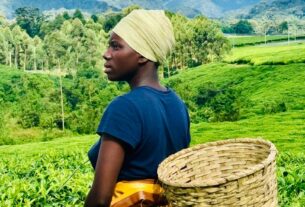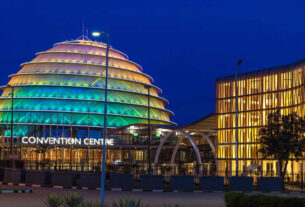The International Monetary Fund( IMF) has released a new report detailing profitable protrusions for Rwanda, indicating a promising growth rate of 7 for 2024. still, this growth is anticipated to decelerate down to 6.5 in 2025. This report is part of the IMF’s’ Regional Economic Outlook,’ which provides an in- depth analysis of the profitable geography acrosssub-Saharan Africa.
For the broader region, the IMF projects a growth rate of 3.6 in 2024, with an awaited increase to 4.2 in 2025. While these numbers suggest a steady profitable recovery, the report also emphasizes the challenges facing numerous African countries, including Rwanda, in enforcing essential profitable reforms following a period of significant dislocation caused by global heads and original profitable difficulties.
Abebe Aemro Selassie, the IMF’s director for African development, conceded that while there has been notable progress in reform sweats across the mainland, numerous serious obstacles persist. He refocused to ongoing political insecurity, rising situations of extreme poverty, adding living costs, and limited development openings as major hindrances to sustained profitable advancement. Selassie underlined the complex challenge faced by policymakers, who must address these pressing issues while contemporaneously fostering long- term growth and reducing inequality.
Selassie further emphasized the significance of bettered governance in prostrating these challenges. He noted that governance is a crucial factor in erecting trust in the operation of government coffers, which is pivotal for profitable stability and growth. By strengthening governance structures, countries can insure more effective use of coffers and increase investor confidence, which is essential for sustained development.
In addition to good governance, Selassie advocates for targeted support for vulnerable populations. He emphasized the need for programs that concentrate on easing the challenges faced by the most underprivileged groups in society. By addressing poverty and perfecting access to education, healthcare, and profitable openings, these populations can more contribute to public growth and reduce the pitfalls of inequality.
Another important point raised by the IMF report is the need for effective communication strategies. Engaging with experts, stakeholders, and the public is essential for icing that profitable reforms and programs are understood and supported. Selassie called for open, transparent communication that involves all applicable parties in the decision- making process, which could help garner broader support for necessary profitable changes.

Despite the obstacles, the IMF’s report provides a cautiously auspicious view of the future ofsub-Saharan Africa’s frugality. It suggests that with the right blend of reforms, targeted investments, and bettered governance, the mainland could see gradational profitable advancements in the coming times. This would not only profit Rwanda but also other countries in the region that are facing analogous challenges.
For Rwanda specifically, the projected growth of 7 in 2024 is a positive index of the country’s profitable adaptability. still, the retardation to 6.5 in 2025 highlights the need for continued reform sweats and careful operation of coffers to insure that the frugality remains on track. Rwanda’s government has formerly shown a strong commitment to profitable development through its long- term strategies, including the National Strategy for Transformation( NST1) and the forthcoming NST2 plan, which concentrate on perfecting structure, education, and healthcare while promoting private sector growth and invention.
The IMF report also underlines the significance of foreign investment in Rwanda’s continued growth. By creating an terrain that’s conducive to business and invention, Rwanda can attract much- demanded foreign capital to fuel development systems, particularly in sectors similar as technology, husbandry, and renewable energy. also, maintaining political stability and perfecting governance will help insure that these investments are effectively used to drive sustainable growth.
While the IMF’s profitable protrusions for Rwanda are encouraging, it’s clear that the road ahead will bear careful attention to both domestic and global profitable challenges. The country must continue to make its capacity to apply effective reforms, support vulnerable groups, and foster an terrain of trust and translucency in governance. By addressing these issues, Rwanda ca n’t only meet its short- term profitable targets but also position itself for long- term, sustainable development.
The IMF’s report offers a cautiously auspicious outlook for the profitable recovery ofsub-Saharan Africa, and Rwanda stands out as a crucial player in this recovery. While challenges remain, the country’s commitment to growth, governance, and inclusive development provides a solid foundation for achieving its profitable pretensions. With the right strategies in place, Rwanda can continue to make significant progress toward getting a indigenous leader in profitable development, setting an illustration for other nations in Africa and beyond.
In conclusion, the IMF’s profitable protrusions for Rwanda, though tempered by anticipated slower growth in 2025, reflect the nation’s flexible profitable performance and eventuality for unborn development. The path to sustainable growth will bear uninterrupted reform sweats, bettered governance, and targeted support for vulnerable populations. By following these recommendations, Rwanda can maintain its positive profitable line and continue to contribute to the broader recovery ofsub-Saharan Africa.



